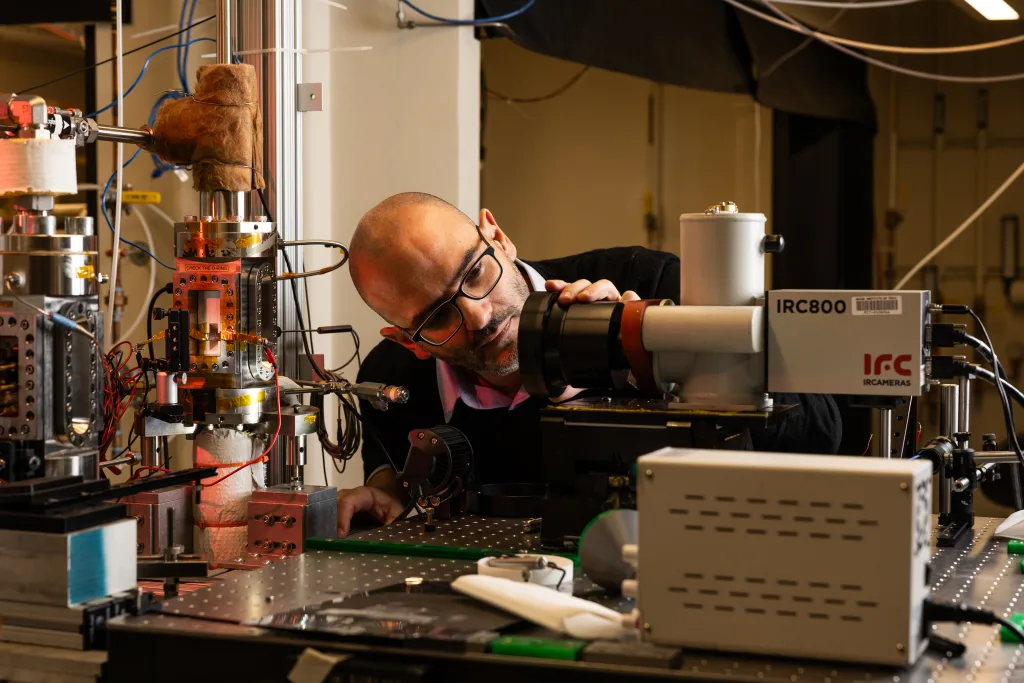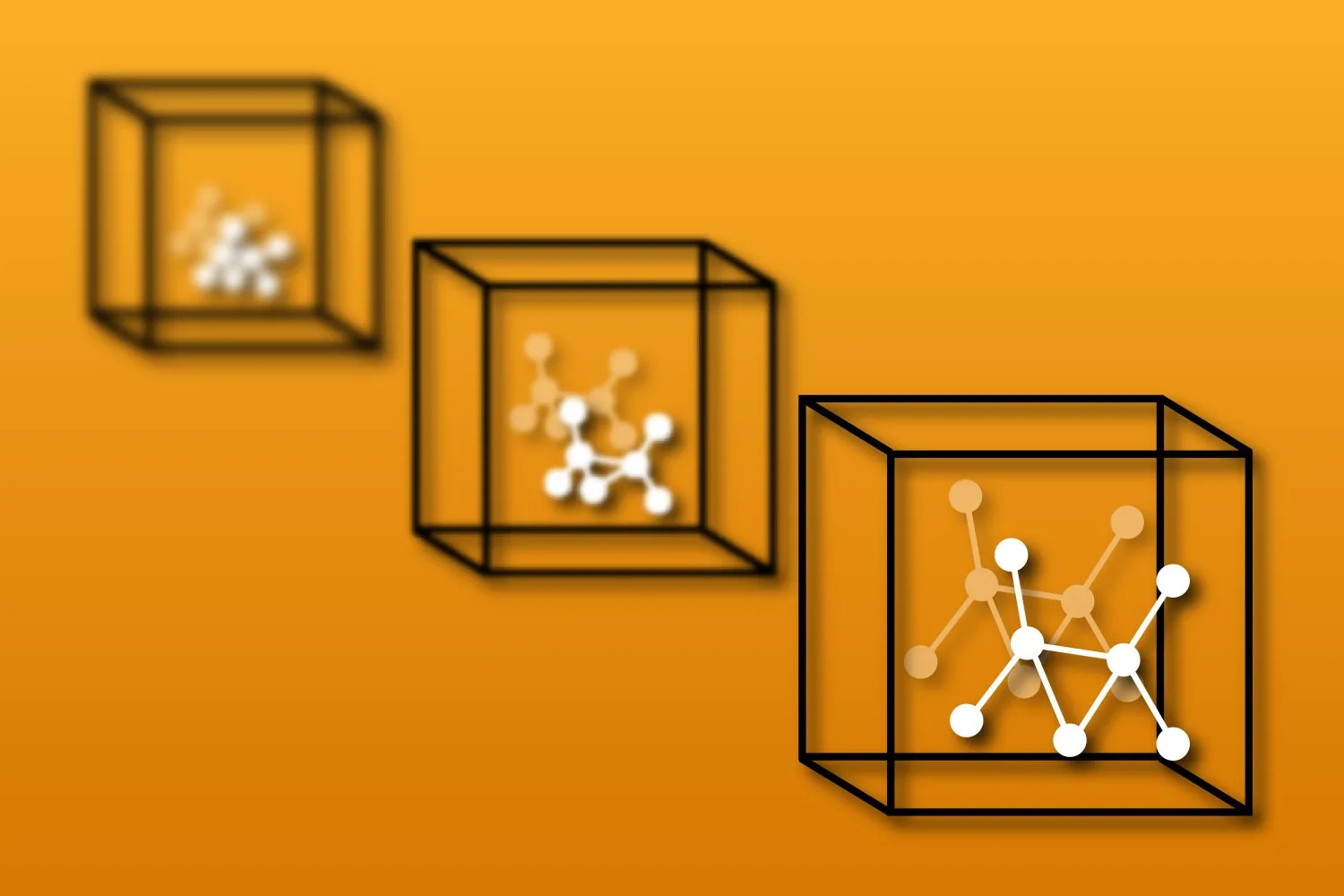Many people may take boiling water for granted, but for Associate Professor Matteo Bucci, exploring the science behind boiling has been a decade-long adventure filled with unexpected discoveries. What seems like a simple phenomenon is surprisingly complex, especially in intricate systems like nuclear reactors. Yet, boiling is fundamental to numerous crucial industrial applications. By decoding its intricacies, advancements can be made in energy efficiency, electronics cooling, water desalination, medical diagnostics, and much more.
“Boiling has implications far beyond nuclear applications,” remarks Bucci, who became a tenured professor at MIT in July. “It plays a role in 80 percent of the power plants responsible for electricity generation. My research touches on areas such as space propulsion, energy storage, and the vital process of computer cooling.”
At his lab, Bucci and his team have pioneered innovative experimental techniques to illuminate a variety of boiling and heat transfer phenomena that have posed challenges for energy projects over the years. A significant concern arises from rapid bubble formation that can create a vapor layer over a surface, hindering heat transfer. In 2023, Bucci and his colleagues identified a unifying principle behind this boiling crisis, potentially leading to more efficient nuclear reactors and enhanced safety measures.
For Bucci, every stride forward brings not only new possibilities but also fresh questions to address. “What’s the best paper?” he asks. “The best paper is always the next one. Just as Alfred Hitchcock once said, past successes don’t guarantee future ones. I consistently encourage my students to ensure our next paper surpasses the last. It’s an ongoing journey of improvement.”
The Path from Engineering to Boiling Science
Born in a small Italian village with a population of around 1,000, Bucci developed mechanical skills early on by assisting in his father’s machine shop and experimenting with various appliances. His passion for cycling eventually took him to the University of Pisa for both undergraduate and graduate studies, where his fascination with matter and the origins of life coalesced with a desire to build and understand mechanical systems.
This led him to choose nuclear engineering, a field that satisfied both his intellectual curiosity and practical interests. “Choosing nuclear engineering was an unlikely yet obvious decision for me,” Bucci explains. “While Italy had largely moved away from nuclear energy, I was drawn to the unique challenges it presented.”
During his PhD studies in France, Bucci met his wife and began working at a national lab. An opportunity arose when his department head asked him to tackle a nuclear reactor safety issue related to transient boiling. By leveraging a methodology developed by MIT Professor Jacopo Buongiorno, Bucci secured funding to become a visiting scientist at MIT in 2013, where he has focused on boiling ever since.
Today, Bucci’s laboratory is at the forefront of developing new diagnostic techniques for studying boiling and heat transfer. Moreover, they are experimenting with new materials and coatings that could significantly enhance heat transfer efficiency, providing researchers with an unprecedented look inside nuclear reactors.
“Our diagnostics can achieve the equivalent of 20 years of experimental work in just one day,” Bucci highlights.
This wealth of data has empowered Bucci to formulate a remarkably straightforward model explaining the boiling crisis. “The efficiency of the boiling process on nuclear reactor cladding is crucial for reactor performance and safety,” he states. “It’s like trying to accelerate a car that has a speed limit. For reactors, this limit is defined by boiling heat transfer, so we aim to understand how to surpass that threshold for better reactor performance.”
Bucci is also making strides in two-phase immersion cooling, a technique where heat from server components causes the surrounding liquid to boil, with the resulting vapor then condensing on a nearby heat exchanger. “This method efficiently cools chips with minimal energy waste, drastically reducing electricity consumption and carbon emissions in data centers,” explains Bucci. “Data centers contribute as much CO2 as the entire aviation sector. By 2040, they are projected to account for over 10 percent of global emissions.”
Mentoring the Next Generation
One of Bucci’s greatest joys is collaborating with students. “Their passion and competence fuel my own motivation,” he asserts. “They dive into new ideas without fear and often pursue exploration to the point where I need to guide them back on track.”
Leading the Red Lab in the Department of Nuclear Science and Engineering, Bucci prioritizes fostering independence and providing support for his students. “We’re not just educating students; we’re cultivating future researchers,” Bucci maintains. “Our primary goal is to furnish them with the skills to tackle challenges independently, whether they be experimental hurdles or interpersonal issues.”
Some of the unique experiments his students conduct involve gathering data during free-fall in an airplane to simulate zero gravity. “Space research resonates with many students, and I join them for these experiments about twice a year,” says Bucci. “Experiencing zero g provides a new perspective and inspires creativity.”
Harnessing the Power of AI
Bucci is also enthusiastic about integrating artificial intelligence into his research. In 2023, he co-authored a multi-university research initiative (MURI) project focused on thermal science and machine learning. He also recently established a journal titled AI Thermal Fluids to highlight AI-driven innovations in his field.
“Our community previously lacked a platform for developing machine-learning techniques in thermal science,” Bucci remarks. “We aimed to create a collaborative space for computer scientists and thermal science researchers to advance their work together.”
Bucci believes AI can expedite the analysis of large datasets generated from his laboratory’s experimental techniques and facilitate the modeling of phenomena that are currently difficult to study. “AI might enable us to uncover insights into phenomena that we can’t yet observe or at least guide us towards understanding the root causes of various problems,” he concludes.
Photo credit & article inspired by: Massachusetts Institute of Technology



